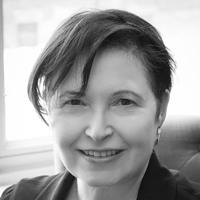

July 13 – 19: “What is the added-value of agents in the self-publishing model?”
 AgentFest continues this week on the Big Thrill! We’re joined by Kimberly Cameron, Helen Heller, Alec Shane, Beth Phelan and John Raab as they discuss the burning question: “What is the added-value of agents in the self-publishing model?”
AgentFest continues this week on the Big Thrill! We’re joined by Kimberly Cameron, Helen Heller, Alec Shane, Beth Phelan and John Raab as they discuss the burning question: “What is the added-value of agents in the self-publishing model?”
~~~~~
Kimberley Cameron, Kimberley Cameron & Associates
www.kimberleycameron.com
 Kimberley Cameron loves finding new voices. She was the co-founder of Knightsbridge Publishing Company with offices in New York and Los Angeles. In 1993 she became partners with Dorris Halsey of The Reece Halsey Agency, founded in 1957. She opened Reece Halsey North in 1995 and in 2009 the agency became Kimberley Cameron & Associates. She resides and works from Tiburon, California and France.
Kimberley Cameron loves finding new voices. She was the co-founder of Knightsbridge Publishing Company with offices in New York and Los Angeles. In 1993 she became partners with Dorris Halsey of The Reece Halsey Agency, founded in 1957. She opened Reece Halsey North in 1995 and in 2009 the agency became Kimberley Cameron & Associates. She resides and works from Tiburon, California and France.
Helen Heller, The Helen Heller Agency
www.helenhelleragency.com
 Helen has spent her career in publishing and specializes in thrillers and major front-list fiction. She likes a big story well told and handles a number of internationally bestselling and multiple-award-winning authors. Helen is a member of the Association of Authors’ Representatives.
Helen has spent her career in publishing and specializes in thrillers and major front-list fiction. She likes a big story well told and handles a number of internationally bestselling and multiple-award-winning authors. Helen is a member of the Association of Authors’ Representatives.
John Raab, Suspense Publishing
www.suspensemagazine.com
 Bio: Born and raised in Ohio, I relocated to Los Angeles, California in 2007. It was that same year my wife, Shannon, and I created Suspense Magazine, which spawned Suspense Publishing onto the literary scene. Currently publishing #1 New York Times Bestselling author, Paul Kemprecos, along with publishing award winning authors Joseph Badal, the writing team of Gary Williams and Vicki Knerly, and Tom B. Sawyer, who was the executive producer of “Murder, She Wrote”. Suspense Publishing is also a partner of the ITW, CWA, HWA and IACW organizations.
Bio: Born and raised in Ohio, I relocated to Los Angeles, California in 2007. It was that same year my wife, Shannon, and I created Suspense Magazine, which spawned Suspense Publishing onto the literary scene. Currently publishing #1 New York Times Bestselling author, Paul Kemprecos, along with publishing award winning authors Joseph Badal, the writing team of Gary Williams and Vicki Knerly, and Tom B. Sawyer, who was the executive producer of “Murder, She Wrote”. Suspense Publishing is also a partner of the ITW, CWA, HWA and IACW organizations.
Beth Phelan, The Bent Agency
www.thebentagency.com
 Bio: Beth Phelan is originally from Fall River, Massachusetts but now lives in Brooklyn. She is a graduate of New York University, lifelong reader and dog person. After holding positions at Waxman Leavell Literary (then called the Scott Waxman Literary Agency) and Howard Morhaim Literary, Beth joined the Bent Agency in 2013 where she is continuing to build her list. She can be found at bethphelan.com, thebentagency.com, and on Twitter at @beth_phelan.
Bio: Beth Phelan is originally from Fall River, Massachusetts but now lives in Brooklyn. She is a graduate of New York University, lifelong reader and dog person. After holding positions at Waxman Leavell Literary (then called the Scott Waxman Literary Agency) and Howard Morhaim Literary, Beth joined the Bent Agency in 2013 where she is continuing to build her list. She can be found at bethphelan.com, thebentagency.com, and on Twitter at @beth_phelan.
Alec Shane, Writers House, LLC
www.writershouse.com
 Bio: Alec majored in English at Brown University, a degree he put to immediate use by moving to Los Angeles after graduation to become a professional stunt man. Realizing that he prefers books to breakaway glass, he moved to New York City in 2008 to pursue a career in publishing. Alec quickly found a home at Writers House Literary Agency, where he has worked directly under agents Jodi Reamer and Amy Berkower since 2009. In that time, he has worked on and provided strong editorial feedback for a large number of Adult and Young Adult titles of all ranges and genres. Alec is now actively seeking out clients for his own list.
Bio: Alec majored in English at Brown University, a degree he put to immediate use by moving to Los Angeles after graduation to become a professional stunt man. Realizing that he prefers books to breakaway glass, he moved to New York City in 2008 to pursue a career in publishing. Alec quickly found a home at Writers House Literary Agency, where he has worked directly under agents Jodi Reamer and Amy Berkower since 2009. In that time, he has worked on and provided strong editorial feedback for a large number of Adult and Young Adult titles of all ranges and genres. Alec is now actively seeking out clients for his own list.
- LAST GIRL MISSING with K.L. Murphy - July 25, 2024
- CHILD OF DUST with Yigal Zur - July 25, 2024
- THE RAVENWOOD CONSPIRACY with Michael Siverling - July 19, 2024
